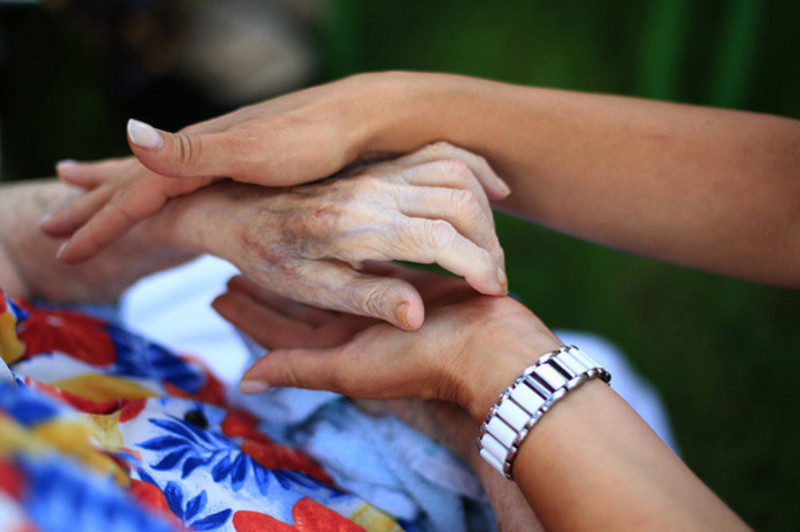Attentive, Complementary, and Inclusive: Palliative Care for Individuals with Disabilities

With demographic change and the post-war baby boom generation heading into the last phase of life, death is becoming a more relevant topic for a large portion of society. Yet for many, confronting one’s own death is still a taboo. This is especially true for individuals with disabilities. The European Senior Academy (ESA) – with the support of the Software AG Foundation (SAGST) – aims to break this societal silence with its palliative care concept for individual care institutions.
“Palliative begins when one starts to talk about death,” explains Nicola Bußkönig, a palliative caregiver for individuals with disabilities at the Benediktushof, one of the project’s two locations in Münsterland and Emsland, where the project is being developed. The first case of end-of-life care in this institution took place around 16 years ago. Since then, the palliative care processes have become smoother, and many aspects of terminal care are carried out on location very intuitively. But as the responsible coordinator Monika Dohmen puts it, “What we are missing is guidelines that give the staff confidence in hospice cases.”
This need can be felt especially strongly at night, when one caregiver may be responsible for over 40 residents, as Marco Strodt-Dieckmann explained, who is involved in the project in St.-Vitus-Werk as the leader-expert for living and residence planning. Until now, it was mostly certain individuals who knew the most about what to do in the case of death, or about individual residents’ wishes in this respect. But what happens if those staff members are not on duty during those difficult, often crisis-like situations – or if those staff members leave permanently?
Over the next three years, the ESA wants to collect experiences from this field to facilitate knowledge sharing. Ideally, they will able to define a framework that is intentionally oriented towards residents’ care needs and that provides support for caregivers. And all participants in the project agree: it is the residents’ needs that are of primary importance here.
What do I want when I die? How do I want to die? And what should happen after I die? It is important to make attentive inquiries into these questions. “With attentive, we mean that the individual and his or her needs are central; we make sure to interact in a way that is relaxed but attentive; and hospice care is agreed-upon and personalized,” explained Dr. Jutta Hollander. Attentiveness is the first of three foundational principles that guide the project. An approach that is complementary and inclusive – the other two principles – is also important in hospice care for individuals with disabilities, the academy director noted. Accordingly, palliative care for individuals with disabilities must not only transcend medical care, but also include fellow residents. Dr. Hollander explained, “Just like in a family, fellow residents can make it easier for the dying person to say farewell.”
Nicola Bußkönig, for example, remembers one resident who felt a deep longing to die “at home.” He had lived in the home for 68 years but was taken to the hospital shortly before his death. But his final hours, says Bußkönig, he wanted to spend in his familiar environment, among his circle of friends and family. “It was a wish shared by the other residents, and which we were very happy to fulfill.”
That wishes like this are fulfilled does not go without saying. Konrad Lampart, a SAGST project manager who has many years of experience working with disabled individuals, is well aware of this fact. “That is why it is so important to develop caregiving communities that consist of relatives, residents, and caregivers. These personal palliative networks provide stability for everyone concerned.”
In cooperation with two institutions for individual care, the European Senior Academy (ESA) is carrying out a project focused on hospice care for individuals with disabilities, which will run from 2018 to 2021. The two project partners are the Benediktushof in Münsterland and St. Vitus Werk in Emsland. During the project phase, internal networks will be developed to complement external palliative care. Ten hospice cases from each institution will be used as case studies. They will build the basis for a concept of attentive, complementary, and inclusive end-of-life care, which will be developed in close cooperation with residents, relatives, and caregiving teams. With the project, the ESA wants to provide individual hospice care for people with disabilities at the end of life, but also aims to use the collected experiences and insights to create guidelines for others.
